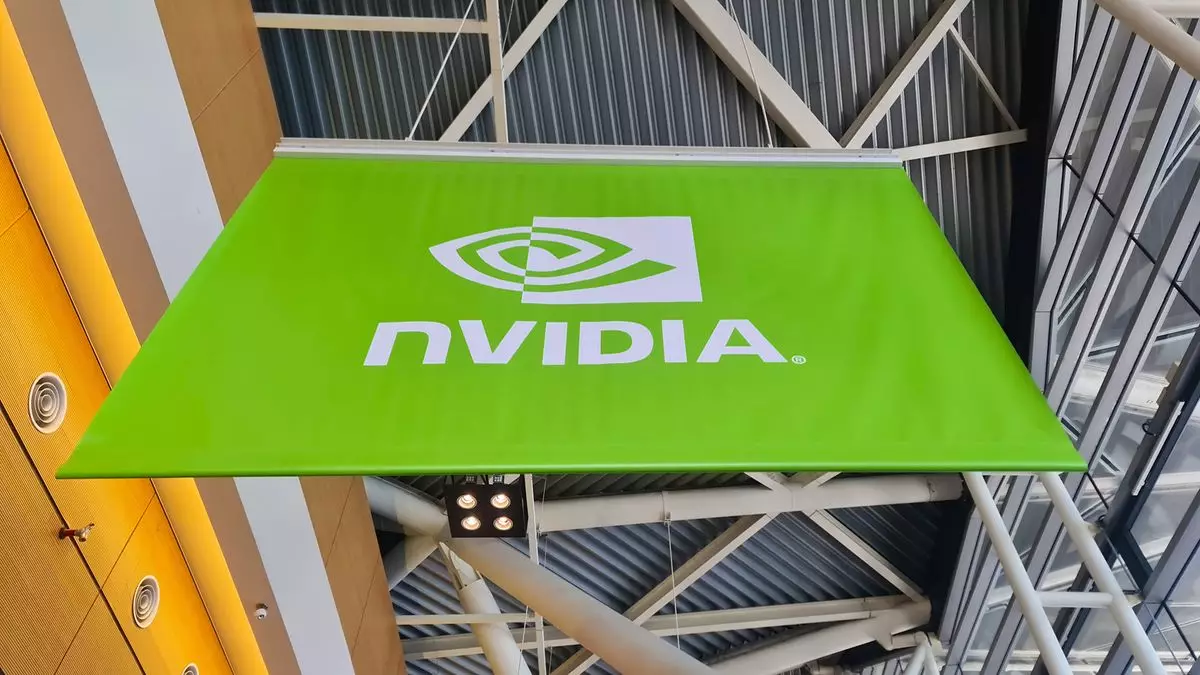In recent years, the tech industry has seen a surge in legal battles, particularly amongst the giants of the sector. With the increasing prominence of artificial intelligence (AI), companies are now facing scrutiny not just for their technological advancements but also for their financial practices. Nvidia, a titan in the AI data center market, has found itself embroiled in a significant legal dispute stemming from allegations of misleading investors about its revenue sources. A recent Supreme Court decision to allow a notable class action lawsuit against Nvidia to proceed has intensified the spotlight on the company’s practices and the broader implications for the tech industry.
According to reports from Reuters, the Supreme Court has effectively sidestepped Nvidia’s request to dismiss a class action lawsuit filed in 2018. This lawsuit accuses the company of misleading investors by downplaying its dependence on the volatile cryptocurrency market, a claim that the plaintiffs argue violates the 1934 Securities Exchange Act. The origins of the lawsuit trace back to a prior dismissal by a federal judge; however, the 9th Circuit Court of Appeals later revived the case, setting the stage for Nvidia’s appeal to the Supreme Court.
The crux of Nvidia’s argument rested on the 1995 Private Securities Litigation Reform Act, claiming that the plaintiffs lacked sufficient evidence to move forward with their case. However, the Supreme Court’s refusal to hear Nvidia’s appeal has allowed the lawsuit to advance without providing a clear rationale for its decision. This ambiguity leaves investors and legal experts speculating about the Court’s perspective on corporate accountability, particularly regarding the tech industry’s relationship with cryptocurrency.
Courtroom Conversations: Insights from Justice Ketanji Brown Jackson
During the hearings, Justice Ketanji Brown Jackson raised an essential point that underscores the essential nature of evidence in the legal process. She questioned Nvidia’s approach, suggesting that they seemed to require plaintiffs to possess concrete evidence before even bringing their case forward. This implies a significant principle in legal proceedings: the scrutiny of evidence should occur during the trial, rather than as a prerequisite for filing a lawsuit. By permitting the class action to proceed, the Supreme Court effectively endorsed this perspective, potentially reinforcing the rights of investors in the face of corporate opacity.
Nvidia’s Crypto Market Dependence: Implications for Investors
Nvidia’s tumultuous relationship with the cryptocurrency market raises critical questions about transparency and investor trust. The company previously paid a $5.5 million fine to the Securities and Exchange Commission for related concerns, pointing to a pattern of scrutiny regarding its financial disclosures. The current class action lawsuit may serve as a pivotal moment for investors seeking recourse against perceived corporate negligence. It raises an important discussion about the responsibilities companies have to their shareholders, especially in times of economic uncertainty where cryptocurrency values can fluctuate dramatically.
For Nvidia, the stakes are high. Even though the company is currently thriving financially amidst its success in the AI sector, the potential repercussions from this lawsuit could serve as a warning to other tech giants. Companies must ensure that they engage in forthright communication with investors regarding their financial dependencies to avoid similar legal entanglements.
The ongoing legal battles faced by Nvidia are not isolated incidents but rather part of a broader trend among technology companies that have recently come under fire for their business practices. Legal cases, particularly those involving shareholder claims, have become increasingly common, leading to a perception that the tech industry may be prioritizing growth over responsible corporate governance. As tech giants navigate the intersection of innovation and regulatory compliance, the outcomes of such lawsuits could have long-lasting effects on their operational strategies and stakeholder relationships.
The legal situation surrounding Nvidia not only has significant implications for the company itself but also serves as an instructive case for the entire tech sector. As legal scrutiny intensifies, the balance between innovation and accountability will become increasingly pivotal in shaping investor trust and corporate behavior in the booming digital economy. Only time will tell how this lawsuit will unfold, but it undeniably marks a defining moment in Nvidia’s trajectory amid the evolving landscape of technology and finance.

